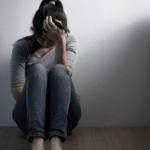Depression and Co-Occurring Mental Health Conditions
Depression can, and often does, have a big impact on your life. From the amount of energy you have right to the level of enjoyment you get out of spending time with loved ones, it can eat at your life in many different ways.
But have you ever noticed other symptoms creeping into your life that don’t relate to depression? Could it be another mental health condition? In short, yes. People with depression often struggle with other mental health conditions, such as anxiety, post-traumatic stress disorder, and attention-deficit hyperactivity disorder.
But how exactly does depression affect mental health? And how does it link to other mental health conditions? Below, we explore the link between depression and other mental health conditions, including:
- Anxiety
- Bipolar disorder
- Schizophrenia
- Obsessive-compulsive disorder
- Eating disorders
- Post-traumatic stress disorder
- Attention-deficit hyperactivity disorder
- Personality disorders
- Chronic illness

Key Takeaways
- Depression often occurs alongside other mental health conditions — such as anxiety, PTSD, OCD, eating disorders, or trauma‑related disorders.
- Co‑occurring disorders can make symptoms more complex — overlapping issues may worsen mood, affect sleep, disrupt concentration, or intensify emotional distress.
- Recognizing co‑occurring conditions early helps shape a more effective, personalized treatment plan.
- Effective care often involves coordinated, integrated approaches — addressing depression and any other disorder together rather than separately.
Table of Contents
How Does Depression Affect Mental Health?
There are many different types of depression, each affecting mental health in different ways. For example, those with persistent depressive disorder have a continuous low mood that doesn’t shift. Whereas, people with bipolar disorder may feel extremely energized one day and struggle with high anxiety and low mood the next. Different still is seasonal affective disorder, which only impacts someone for a season (usually winter), and then eases with the changing weather.
However, regardless of which form of depression you’re struggling with, it can take a negative toll on your overall health and emotional well-being. Alongside this, depression can lead to sleep disturbances, appetite changes, fatigue, and poor concentration, which can worsen its effect on your mental health.1
What Is the Relationship Between Mental Health and Depression?
The question you may be asking right now is “Why?” And how does depression link with specific mental health conditions like anxiety, bipolar disorder, schizophrenia, and OCD? Below, we break down some of the mental health conditions that most commonly co-occur with depression.
Depression and Anxiety
When someone has both anxiety and depression, they experience the symptoms of both conditions. In some cases, this can lead to severe and long-lasting symptoms and potentially increase a person’s suicide risk.3
Depression and Bipolar Disorder
However, the extent to which depressive episodes affect a person with bipolar depends on which type of bipolar they have: Bipolar I or bipolar II. Those with bipolar I tend to have longer manic episodes followed by shorter depressive episodes. However, these depressive episodes still have symptoms of mania, such as elevated energy. In contrast, bipolar II involves longer periods of depression and less intense manic episodes.4
Depression and Schizophrenia
It’s also possible to have depression with psychotic features, also known as psychotic depression. Those with psychotic depression tend to experience delusions and hallucinations, as well as the typical symptoms of major depressive disorder.
Research shows that prescribed medications, including quetiapine, olanzapine, and risperidone, can reduce the occurrence of depression in those with schizophrenia.5
Depression and Obsessive-Compulsive Disorder
There appears to be a strong overlap between depression and OCD. Obsessional thoughts can increase the risk of depression symptoms. Both OCD and depression are also connected to negative emotions and difficulties with concentration.6
Depression and Eating Disorders
Unfortunately, research shows that having depression alongside an eating disorder can increase the severity of eating disorder symptoms. What’s more, depression may make it more difficult for someone to recover from an eating disorder.8
Depression and PTSD
Exposure to trauma can increase a person’s risk of experiencing depressive symptoms. So, it’s not surprising then that there’s a high comorbidity rate between depression and PTSD. Approximately half of people with PTSD also have depression.9
Depression and ADHD
Scientists have found that having ADHD during childhood increases the risk of recurrent depression later in life. Genetics associated with ADHD can also make people vulnerable to depression symptoms.10
Depression and Personality Disorders
Antisocial personality disorder- Obsessive-compulsive personality disorder
- Borderline personality disorder
- Narcissistic personality disorder.
Depression and Chronic Illness
Studies don’t show a direct link between depression and chronic illness, per se. However, this is what the research tells us:
Depression is associated with risky healthy behaviors, which can in turn increase the risk of chronic health conditions.- Complications associated with medical conditions can lead to depression.
- Depression can lead to a worse prognosis in people with chronic health conditions because it can interfere with proper self-care and treatment compliance.12
Treatment for Depression and Co-Occurring Mental Health Conditions
While depression and co-occurring mental health conditions may come with many difficulties, it’s important to remember that recovery is possible. What’s more, many treatment options are available to help you cope and reduce your symptoms. Let’s explore some of the key treatment methods for depression and co-occurring conditions:

Cognitive Behavioral Therapy (CBT)
CBT focuses on identifying and changing negative thought patterns and behaviors that contribute to depression and other mental health conditions. Research shows that CBT can be highly effective for those struggling with depression, anxiety, OCD, personality disorders, and more. At Mission Connection, we offer individualized CBT services (both in person and online) to suit both you and your unique combination of mental health conditions.
Interpersonal Therapy (IPT)
IPT focuses on improving communication and relationship skills and addressing any relationship issues that may be worsening depression symptoms. IPT can be particularly effective for those facing depression after losing a loved one, experiencing a life transition, or after a relationship breakdown. At Mission Connection, we have specialized IPT therapists who can support you in addressing your depression symptoms and relationship difficulties.
Transcranial Stimulation Therapy (TMS)
TMS is a non-invasive brain stimulation therapy that uses magnetic pulses to stimulate the areas of the brain that play a role in regulating mood. TMS appears to be effective for treatment-resistant depression, and may also help those with anxiety and OCD. Our team at Mission Connection can provide information on TMS, assist with insurance, and offer support throughout the treatment process.
Trauma-Focused Therapy
This form of therapy addresses the impact of trauma on mental health in general, which means it can help people process their traumatic experiences and build coping strategies. As such, this can help to heal from PTSD and alleviate symptoms of trauma-related depression and anxiety.
Emotion Regulation Therapy
It’s important to note that treatment should be integrated, addressing both conditions at once. The treatment modalities listed above can be particularly effective for co-occurring conditions.
Reach Out for Depression Support Today
If you’re struggling with depression and co-occurring mental health conditions, know that you don’t have to manage these alone. At Mission Connection, we offer a range of treatment approaches and programs to suit you and help you manage your symptoms.
If your symptoms are severe and affecting your day-to-day life, making it difficult to function, we offer residential treatment programs in California, Virginia, and Washington. However, if your symptoms are manageable and you’d like to visit for support services instead, we also offer outpatient programs.
And if you’re feeling overwhelmed and unsure which program is right for you, that’s okay, too. We can help. Reach out to us and we can guide you through the process of choosing the program that’s right for you.
Get in contact at 866-338-4958, or get started here.
References
- World Health Organization. (n.d.) Depression. https://docs.google.com/document/d/1BHoiUoWv8ry0tZ8qdqTh2LRj9ZrbHrpkIayEawvJ99w/edit?usp=sharing
- Thaipisuttikul, P., Ittasakul, P., Waleeprakhon, P., Wisajun, P., & Jullagate, S. (2014). Psychiatric comorbidities in patients with major depressive disorder. Neuropsychiatric disease and treatment, 10, 2097–2103. https://doi.org/10.2147/NDT.S72026
- Kircanski, K., LeMoult, J., Ordaz, S., & Gotlib, I. H. (2017). Investigating the nature of co-occurring depression and anxiety: Comparing diagnostic and dimensional research approaches. Journal of Affective Disorders, 216, 123–135. https://doi.org/10.1016/j.jad.2016.08.006
- National Institute of Mental Health. (2025). Bipolar disorder. https://www.nimh.nih.gov/health/topics/bipolar-disorder
- Zhao, M., Ma, J., Wu, Y., Zhang, Y., Wang, L., Song, H., & Sun, X. (2024). Depressive and anxiety symptoms among schizophrenia patients. Journal of Affective Disorders, 362, 749–754. https://doi.org/10.1016/j.jad.2024.07.130
- Hellberg, S. N., Abramowitz, J. S., Ojalehto, H. J., Butcher, M. W., Buchholz, J. L., & Riemann, B. C. (2022). Co-occurring depression and obsessive-compulsive disorder: A dimensional network approach. Journal of Affective Disorders, 317, 417–426. https://doi.org/10.1016/j.jad.2022.08.101
- Hambleton, A., Pepin, G., Le, A., Maloney, D., National Eating Disorder Research Consortium, Touyz, S., & Maguire, S. (2022). Psychiatric and medical comorbidities of eating disorders: Findings from a rapid review of the literature. Journal of Eating Disorders, 10, Article 132. https://doi.org/10.1186/s40337-022-00654-2
- Sander, J., Moessner, M., & Bauer, S. (2021). Depression, anxiety, and eating disorder-related impairment: Moderators in female adolescents and young adults. International Journal of Environmental Research and Public Health, 18(5), 2779. https://doi.org/10.3390/ijerph18052779
- Flory, J. D., & Yehuda, R. (2015). Comorbidity between post-traumatic stress disorder and major depressive disorder: Alternative explanations and treatment considerations. Dialogues in Clinical Neuroscience, 17(2), 141–150. https://doi.org/10.31887/DCNS.2015.17.2/jflory
- Riglin, L., Leppert, B., Dardani, C., Thapar, A. K., Rice, F., O’Donovan, M. C., Davey Smith, G., Stergiakouli, E., Tilling, K., & Thapar, A. (2020). ADHD and depression: Investigating a causal explanation. Psychological Medicine, 51(11), 1890–1897. https://doi.org/10.1017/S0033291720000665
- Wongpakaran, N., Wongpakaran, T., Boonyanaruthee, V., Pinyopornpanish, M., & Intaprasert, S. (2015). Comorbid personality disorders among patients with depression. Neuropsychiatric Disease and Treatment, 11, 1091–1096. https://doi.org/10.2147/NDT.S82884
- Katon, W. J. (2011). Epidemiology and treatment of depression in patients with chronic medical illness. Dialogues in Clinical Neuroscience, 13(1), 7–23. https://doi.org/10.31887/DCNS.2011.13.1/wkaton
- Mennin, D. S., Fresco, D. M., O’Toole, M. S., & Heimberg, R. G. (2018). A randomized controlled trial of emotion regulation therapy for generalized anxiety disorder with and without co-occurring depression. Journal of Consulting and Clinical Psychology, 86(3), 268–281. https://doi.org/10.1037/ccp0000289
Depression & Co-Occurring Disorders FAQs
“Co‑occurring disorder” means having depression at the same time as one or more other mental health conditions — like anxiety, PTSD, obsessive‑compulsive disorder, or other mood or trauma‑related disorders.
When disorders overlap, symptoms can feed into each other — anxiety can worsen depression, trauma can intensify emotional pain, or compulsions may deepen hopelessness. Knowing all the conditions helps build a complete care plan.
Yes. Treatment may need to be more comprehensive — using therapies tailored to address multiple issues, possibly combining different approaches (therapy plus medication), and making sure care looks at the whole person, not just one diagnosis.
It’s common to see depression together with anxiety disorders, post‑traumatic stress disorder (PTSD), obsessive‑compulsive tendencies, trauma‑related symptoms, or other mood and anxiety disorders.
At Mission Connection, we begin with a thorough assessment to identify all issues affecting you — then build a tailored care plan that may include therapy, support, and treatment for every condition present, helping you achieve balanced mental health.
- Signs of Treatment-Resistant Depression
- Signs of Depression Relapse
- Depression-Related Sleep Issues
- Depression Symptom Checklist
- ICD-10 Criteria for Depression
- Major Depressive Disorder (MDD) Symptoms
- Depression Symptoms
- Depression Self-Test
- PHQ-9 Depression Test
- Warning Signs of Depression
- Types of Depression
- Best Therapies for Depression
- Talk Therapy for Depression
- Telehealth for Depression
- Personalized Therapy for Depression
- Holistic Treatment for Depression
- Online Therapy for Depression
- Effective Treatments for Depression
- Medications for Depression
- Treatment-Resistant Depression Options
- Depression Relapse Prevention






